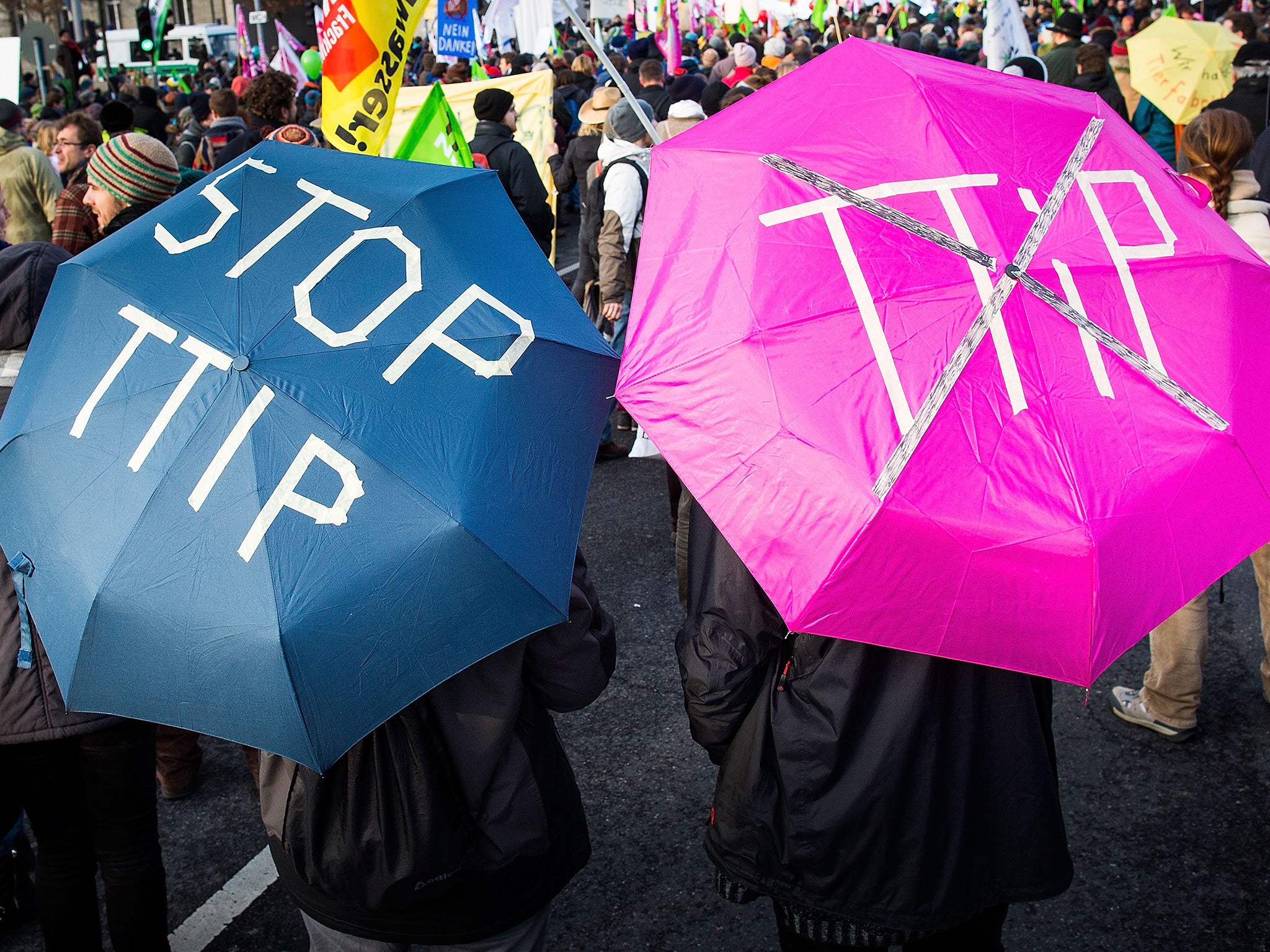A controversial new trade deal between the EU and the United States could make it more difficult to fight tax avoidance, a new report has warned.
TTIP, the Transatlantic Trade and Investment Partnership, is expected to include provisions to allow multinational corporations to effectively “sue” governments for taking actions that might damage their business.
A new report by the Transnational Institute and Global Justice Now found that previous implementations of this rule in other trade agreements have been used to fight tax policies imposed by soverign countries.
The analysis, which looked at data and documents of hundreds past of “investor state dispute settlement” (ISDS) tribunal cases, found that 24 countries have already been sued for changing their tax policies.
ISDS clauses are written into international free trade agreements and allow foreign investors to take governments to court.
Countries that have already had tax policies challenged by corporations include India, Romania, Mexico, Ecuador, and Uganda.
US oil giant ExxonMobil has taken Russia to court asking for $500m in taxes it paid on a gas project, while Vodafone has been suing India since 2007 after the country insisted it paid capital gains tax on an offshore transaction.
“The evidence of the dangers of these investment deals continues to mount. Not only do they affect health and the environment and cost taxpayers millions in legal fees, this report shows they also affect the ability of governments to tax corporations effectively,” said Cecilia Olivet from the Transnational Institute.
“This is yet more money lining the pockets of corporate executives stolen from the public taxpayer. New trade deals such as TTIP and CETA have to be stopped and the public interest defended.”
Nick Dearden, the director of Global Justice Now said: “Despite the enormous public outcry over companies like Google and Amazon paying ridiculously small amounts of tax in the UK, the government is trying to sign us up to a trade deal that could effectively prevent us from bringing about laws that could address tax injustice.
“The ability to enact effective and fair tax systems to finance vital public services is one of the defining features of sovereignty. The fact that multinational companies would be able to challenge and undermine that under TTIP is testament to the terrifying extent of the corporate grab embedded in this toxic trade deal.”
Tax justice campaigners including Friends of the Earth, the Tax Justice Network, and Global Justice Now have written to David Cameron to draw his attention to the new evidence.
Leading opposition figures in the UK have previously said they are worried about the effect TTIP could have on the health service.
In October last year Jeremy Corbyn, Nicola Sturgeon, Nigel Farage and Natalie Bennett all signed an appeal urging the NHS to be exempt from the deal.
The next round of secretive TTIP negotiations begin in Brussels next week. In the last round of negotiations the European Commission proposed an alternative way of holding governments to the trade deal – but it has so far been met with rejections by US negotiators

Join our commenting forum
Join thought-provoking conversations, follow other Independent readers and see their replies
Comments